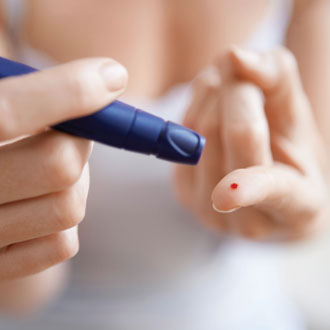GP-led diabetes model ‘saved NHS £2m by cutting heart attacks and amputations’

A new model of diabetes care that saw GPs taking over the care of nearly half of patients with type-2 diabetes saved the NHS £2m in just one year, an evaluation has claimed.
The ‘Super Six’ model of diabetes care run by Portsmouth Hospitals NHS Trust helped reduce hospital admissions and prevent complications such as heart attacks and amputations since it was started five years ago, a study published in the journal Diabetes and Primary Care found.
The findings come as NHS chiefs are planning to roll out similar schemes getting GPs to take on management of a range of conditions usually dealt with in hospitals.
The Portsmouth scheme – led by Dr Partha Kar, who has been appointed associate clinical director for diabetes at NHS England – is one of a number of schemes championed by NHS chief Simon Stevens as the kind of GP ‘one-stop shop’ approach the Government wants to see shifting care for a raft of conditions out of hospital and into general practice.
Under the scheme, which first started in 2010, GPs across the six CCGs in the area were invited to take over the care of around half of patients who were under the management of specialist diabetes clinics based in hospital.
Consultants committed to continuing the management of six key groups of patients requiring complex, specialist care, such as those with type 1 diabetes with poor blood sugar control, on insulin pumps, or requiring intensive diabetes foot care – which amounted to around half of the patients.
Of the remaining half, GPs agreed to take on 95% – most of whom were patients with type-2 diabetes who required some specialist support.
Practices were then supported in caring for these patients by a community diabetes team which included both consultants and specialist nurses from the hospital; each GP practice was visited by the consultants twice a year and GPs also had access to the team via email and telephone.
In the evaluation of the scheme at five years, consultants at the Trust estimated that, for 2014/15, the rates of both MIs and strokes had been reduced by a fifth, and the rate of amputations cut by two-fifths, compared with projected rates of each event that year.
The study also found big relative decreases in the rate of hospital admissions over the five years, including a 30% drop in admissions for diabetic ketoacidosis, and a 40% reduction in those for hypoglycaemic events.
Based on the average costs associated with these hospital admissions and complications, the team estimated the Trust had saved £1.9m in 2014/15 alone as a direct result of discharging care to GPs.
The consultant team – led by Dr Kar, who is a consultant in diabetes and endocrinology – concluded: ‘The restructuring of our services, while not always perfect or easy, has led to improvements in patient and practitioner satisfaction, HbA1c and long-term complications.
‘This has been achieved without major uplift in resources and has resulted in cost savings, both in real time by reducing follow-up appointments and hospital bed days, and long-term by optimising the health of our community.’
Speaking to Pulse in a personal capacity, Dr Kar said: ‘One fundamental point is that there was investment to make it happen with for example LES schemes, so investment into community services and specialist nurses going in to train practices. Otherwise this can’t happen.’
He said that funding of ‘around £150,000 to £200,000’ had been ploughed into the programme for enhanced services to get GPs and community nurses upskilled in diabetes management.
Dr Kar stressed that NHS England is looking at a range of different models and that the Portsmouth version ‘is not a one size fits all’ and ‘would not be forced onto CCGs’.
Dr Andrew Green, GPC clinical and prescribing lead, said: ‘Diabetes is, and will become increasingly, a huge challenge. It is recognised that the current model of care often leaves GPs struggling to get prompt advise when it is needed.
‘I believe that model of care such as the “Super Six” model have great potential to improve outcomes for patients, and ensure that the skills of everyone in the diabetes care-chain is used appropriately. Successful models do, however, have a number of common features; adequate funding, full engagement with GPs, and rapid access to specialist advice.’
GPs set to take over care of hospital patients
The Portsmouth ‘Super Six’ model is one of the new models of care tested out by NHS ‘vanguard areas’ that are now being promoted by NHS England in a bid to shift more hospital care into the community, with the aim of reducing unnecessary hospital use and cutting costs.
NHS chief executive Simon Stevens recently said this could see GPs taking on management of outpatient care for ‘all the -ologies’ .
And Health secretary Jeremy Hunt has given the approach his full backing, saying he wants GP practices ‘one-stop shops’ to ‘revolutionise’ GPs’ role.
However, as plans for shifting hospital to community care could become a vehicle for swinging cuts under the Sustainability and Transformation Plans, there are concerns over whether sufficient funding will ever materialise.
Visit Pulse Reference for details on 140 symptoms, including easily searchable symptoms and categories, offering you a free platform to check symptoms and receive potential diagnoses during consultations.










